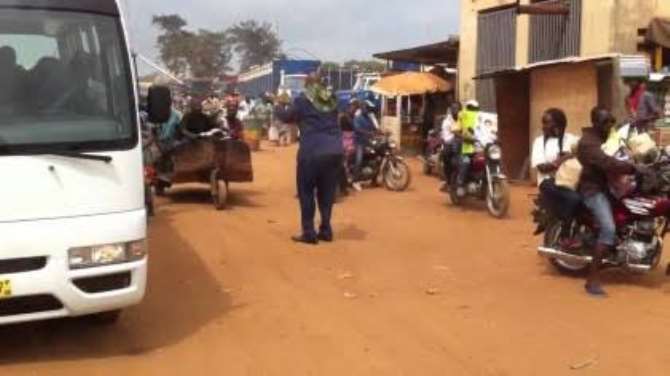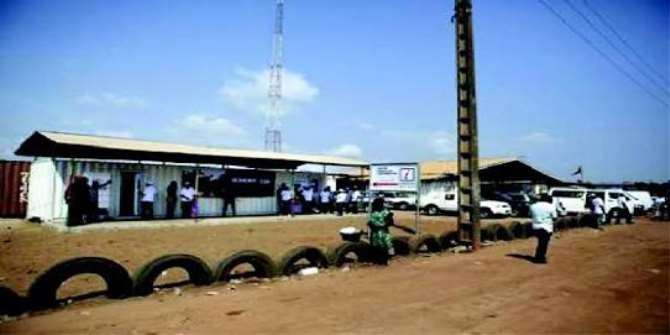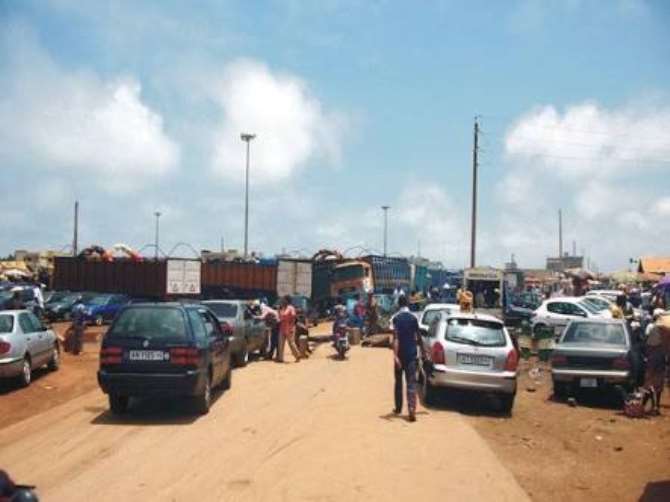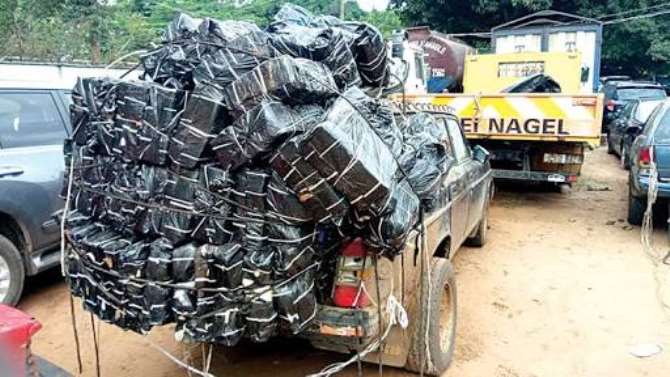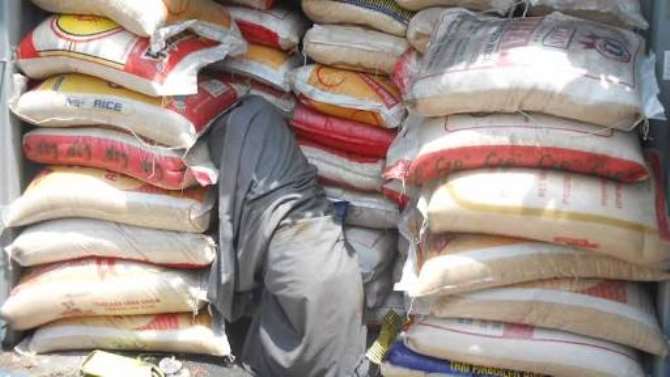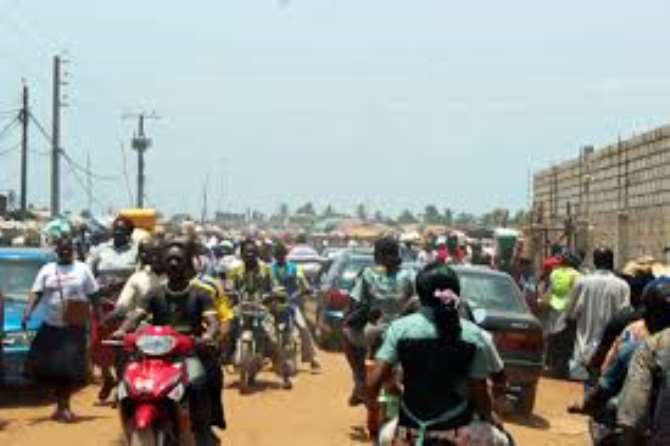Nigeria-benin Republic Border: Racketeering, Bribery, Extortion, Smuggling
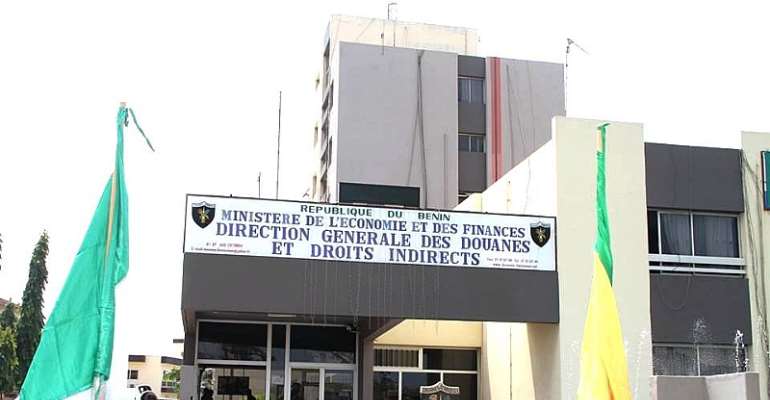
For six days in January 2018, Gbenga Odunsi, an investigative journalist went undercover– first as a traveller; later as a trader; and finally as a resident – to document the illegal activities of the security team posted at the Nigeria-Benin Republic border. He witnessed a rare display of corruption by Nigerian Customs and Immigration officials, who station touts — known as kelebe — along checkpoints to extort money from travellers. His investigation evince that crossing Seme border to Benin Republic with large sum of illegal money; transporting counterfeit products from Benin Republic, Togo, or Ghana to Nigeria is straightforward: have a few hundreds of Naira, Cedis or CFA with you and bribe your way from one country to the following and the subsequent and the next.
“These thieves are here again to amass illegal money from travellers. Documents mean nothing to the authorities. They are interested in nothing but Naira and CFA”.
A co-traveller murmurs this while on our way to Benin Republic through the famous Seme border. It is a straightforward journey from CMS in the heart of Lagos to the Seme border. Public transportation connects CMS to Mile 2, from which private cars connect the city to Badagry on the outskirts of Lagos and then taxis ferry travellers to the Seme border. Seme is one of the busiest borders between Nigeria and its neighbours. As such, it has become one of the more common routes through which most banned items illegally enter Nigeria.
I alight at the filling station that doubles as a Bus stop and I am quickly swarmed by several persons trying to sell products or services ranging from handbags, clothing items to SIM cards. There are also food vendors, currency changers and even guides, whose only job is to guide you through the process of crossing the border. I spoted my host who is waiting for me at the filling station.
Crossing the Border
I arrive at the Seme border post with all valid documents, and attempt to cross from the Nigerian section of the border to Benin Republic. Crossing the border should be free, but sadly, the security forces have commandeered the border station into an unofficial private toll, encouraging the crossing of smugglers of all sorts of commodities from one country to another with just a tip of token.
The problem is not that the routine isn’t heavily guarded. On the contrary, there are a high number of roadblocks and even illegal barriers set up on the roads. Heavy presence of officials of the Nigeria Customs Service, Nigeria Police, Nigeria Immigration Service and other agencies along the road would give one the impression that it was a well secured international route.
An unfortunate side effect of these bottlenecks is persistent traffic. I find that the traffic at Seme border is artificial. People who are on the border, the smugglers, the customs, the immigration want to make money, and they know that the only way to extort money from travellers and drivers is to waste their time. At the border, hooligans and drifters cohabitate in concordance with the diverse security teams stationed there. Some of the time, the road urchins even work for the security powers and are responsible to them. Stern looking officials wave down and check the vehicles that ply the busy road, requesting for documents that the drivers and travelled have already shown at a number of previous legal and illegal stops and checkpoints. By the time travellers get to the actual border they have either been extorted or are primed for more extortion at the actual border.
Bribery and Extortion Racketeering at the border
The border crossing itself is rife with bogus fees. Crossing the border for the first time attracts a different fee from an ‘old crosser’. You need a valid passport and yellow card to cross these borders. On the Nigerian side, I am ordered to pay two thousand naira for the yellow card — which is one of the necessary documents. At the immigration desk, I am asked to pay another two thousand naira. The officials at the border do not care that you already have your documents or that you are unwilling to pay, they will deny you passage for as long as it is needed to emphasise their resolve to extort you. These micro bribes cannot be negotiated either. There are about fifteen checkpoints with the Nigeria Customs Service, the Nigeria Immigration Service, and sundry government agencies, manning them. The first — paraded by immigration officers— isn’t really a stop but they ask for money anyway. The second is the ‘Port Health’ stop. If you’re crossing for the first time (with your valid yellow card certificate), they still ask for N1,500. Next stop is where you ‘register your passport’. Here, first-timers pay N1000. Up next is the ‘immigration office’. Here, they ask for a total of N2,000 in the two small rooms.
A co-traveller — a middle-aged Edo man— who is well versed in the organised extortion at the border tells me at times the corrupt syndicates collect as high N10,000 from unsuspecting Nigerians for stamping of a “virgin” passport.
“Unsuspecting victims are made to pay higher fees by these corrupt officers. I can vividly recollect an Immigration officer asking a lady to pay ten thousand naira to get her passport stamped. But for the timely intervention of the smart man behind him, the lady would have paid such ridiculous amount.”
On the Beninoise side, there are three stops. To start with is the Immigration office. The cost for novices is N2,000 and regular travellers is N1000. Next is the Port Health stop. Cost for novices is N1,000. Regular travellers are allowed to cross for nothing. In conclusion is a bicycle stop where first-time travellers pay another N500.
The following day, I went back to the border, not as a traveller/tourist, but as a sachet water seller. I had bought three bags of sachet water with ice block, packed them in a cooler and stationed myself at a close range between the market and a customs and immigration checkpoints. Spending hours at the border, I observed there was dereliction of duty and duplication of efforts. Money changed hands in quick succession as motorists and okada riders queued up to pay illegal tolls.
Those plying that route and conversant with the organised extortion seem to understand nothing but full co-operation will suffice and have already carefully prepared their bribes. With how smoothly some of these transactions occurred, it would be incredibly easy for smugglers to use money to ‘buy’ their way out of investigation even if they were transporting contraband goods or foreign terrorists. Almost everyone was busy giving out and collecting money.
At some customs checkpoints, drivers are obliged to pay between 1000 and 2,000 CFA in a fee decided on semi-arbitrarily in relation to the size of their vehicles. In other cases, it is a matter of paying in kind. Usually, some of the products being transported must be given to the security agents to allow passage.
Despite the fact that travellers are required to exit their transport vehicles and cross the border by foot, many choose instead to remain in the vehicles transporting them into Nigeria or Benin Republic. In a few cases, the drivers collect the travel permit of their travellers, approach the immigration office with some monetary gratification, and clear the passengers in absentia after which the passengers are ferried into either nation.
Research suggests only heads of state, Presidents, diplomats and other high ranking state officials are exempted from such extortion when crossing the Seme border. Everyone else is forced to obey the extortionist orders of border security agents. The Immigration Service, Customs, and Police officials have been positioned on each side at the borders of Nigeria-Benin Republic — and all of them are engaged in one form or another of extortion.
I can roughly estimate from my time staking out the border that an average of 2000 individuals cross the Nigeria-Benin verge each day, so one can extrapolate just how much money these security specialists are bringing in through these rackets.
On a particular occasion, I watched closely as a traveller, a student — in a yellow polo shirt with blue jeans — who was travelling via a Chisco bus, was harassed by an Immigration officer. The student had wanted to eat at a restaurant at the Benin side but was denied entry by the officer.
He was stopped by a plain-clothed immigration official, who demanded for a N100 gratification. He insisted that the traveller either complied or returned to eat in any of the kiosks on the Nigerian side. However, after parting with a paltry N100, he was allowed entry into Benin Republic for the meal.
A trader-friend — who is regular at the checkpoint — dismissed the fact that the security officials are corrupt. He maintained that even when the authorities do not want to take bribes, the drivers and passengers force cash tips on the officers as a way to grease the immigration process and curry favour.
“Passenger buses travelling from Ghana to Nigeria with Chisco buses urge their travellers to contribute a thousand CFA each, to be paid at each point of exit/entry in order to avoid pointless delays”
Giving an account of his brutal experience at the Customs checkpoint, a truck driver said, “They knelt me down under the hot sun. They nearly laid hands on me for having dared to ask for explanations why they were demanding money from me.
“The security service at the post then ordered me to pay the money before I could get the documents covering my vehicle, or I could get into my car.”
The border unofficially functions all day, even though officially it closes at 10pm and opens at 6am. During my investigation, I restricted myself to traditional working hours. The following day was bright, in the afternoon; I went straight to one of the restaurants located immediately after the Seme border.
Because of the peculiarity of the border and the larger number of plain-clothed officials who patrol the border and its environs, residents and travellers are reluctant to discuss their experiences. I decided to draw them out by making myself a focal point. At one of the border restaurants I intentionally created a scene to draw people’s attention: in loud tones, I lament on how authorities at the border extorted money from me and my friend, and how insecure the border was. The first response I get is mind-blowing. A middle-aged woman asks if it’s my first time of crossing the border. I reply in the affirmative.
“No wonder you are complaining. This is how we have been coping with for some years now. Year in and out, new officers are posted at the border, but you find out that the new ones are even worse than the previous officers. Corruption is the price Nigeria is paying for a premature independence,” she concludes.
Another traveller expresses his dissatisfaction with the immigration officers at the Seme border. Over the course of ten minutes, he narrates his ordeal at the border and how an immigration officer advised him to defy all checkpoints and sneak into Benin republic, even though he had complete and accurate documents.
“I am a student who came to the Republic of Benin for preparation. On getting to Seme outskirt, I was requested to present my travel permit and yellow card, which I gave. The Nigerian Immigration officers at that point began saying I’ll have to pay a considerable measure of cash to stamp my international ID as it is a Virgin travel permit. I have utilised this same visa to get into a few nations in Europe including Britain and Ireland. The officer went ahead to encourage me to rather enter the nation unlawfully, settle him with substantially less than I’ll require to stamp and go my way. Towards the end I wound up paying a considerable amount to stamp my passport as I would not like to enter Benin wrongfully. All my Nigerian friends that went through Seme had comparable issues”.

